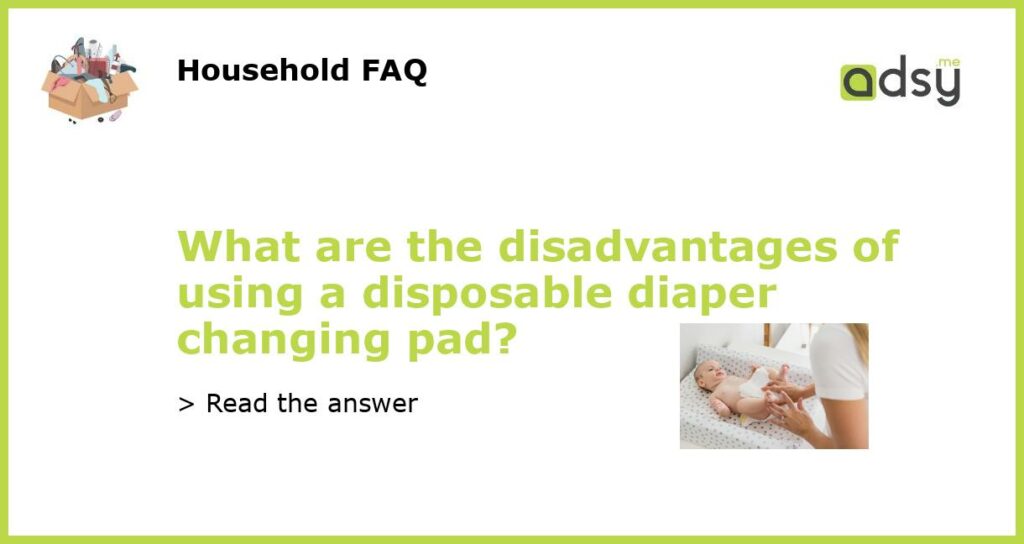The Disadvantages of Using a Disposable Diaper Changing Pad
As parents, we want the best for our babies. One of the essential items in a baby’s life is a changing pad. But with so many options available, which one do you choose? While disposable diaper changing pads may seem like a convenient choice, there are several disadvantages to using them.
Chemical Exposure
Many disposable diaper changing pads contain harmful chemicals such as phthalates, dyes, and fragrances. These chemicals can cause skin irritation and allergic reactions in babies. They can also be harmful to the environment, especially when disposed of incorrectly. Using a washable, non-toxic changing pad is a safer and more eco-friendly choice.
Cost
Disposable diaper changing pads are not a cost-effective choice in the long run. While they may seem cheap at first, the cost adds up over time. In contrast, a washable changing pad can be used for multiple children and can save parents money in the long run.
Convenience
While disposable diaper changing pads may seem convenient, they are not always the best choice. They can easily tear and spill, causing a mess for parents to clean up. In contrast, a washable changing pad can be easily cleaned and reused, saving parents time and hassle in the long run.
Environmental Impact
Disposable diaper changing pads are not eco-friendly. They end up in landfills and take a long time to break down. In contrast, a washable changing pad can be reused multiple times and is a more sustainable option for parents concerned about the environment.
Quality
Many disposable diaper changing pads are thin and flimsy, not providing enough support for babies. In contrast, high-quality washable changing pads are made with durable materials that provide support and comfort for babies.
In conclusion, while disposable diaper changing pads may seem convenient and easy to use, they come with several disadvantages. Parents should consider the long-term cost, environmental impact, and potential health risks before choosing a changing pad for their baby.






